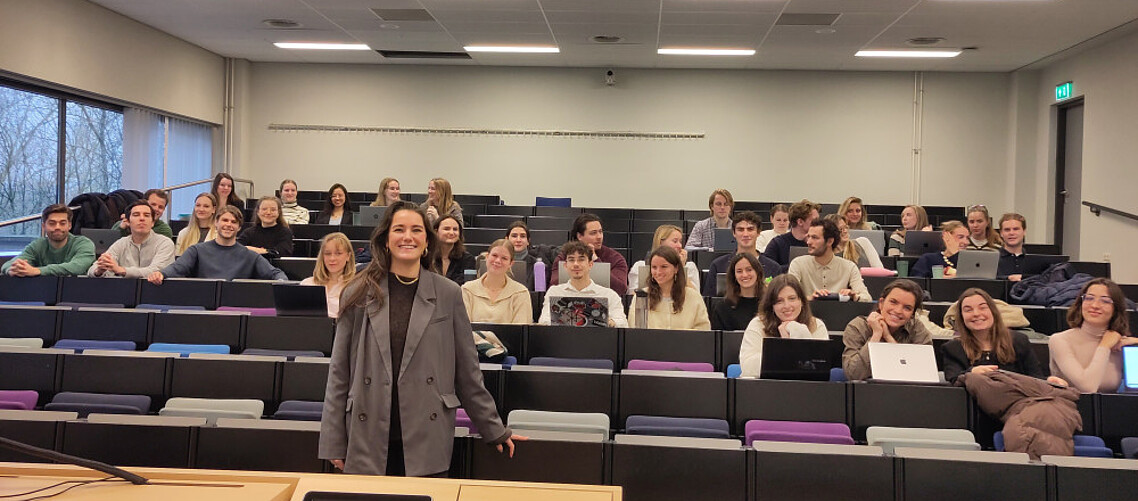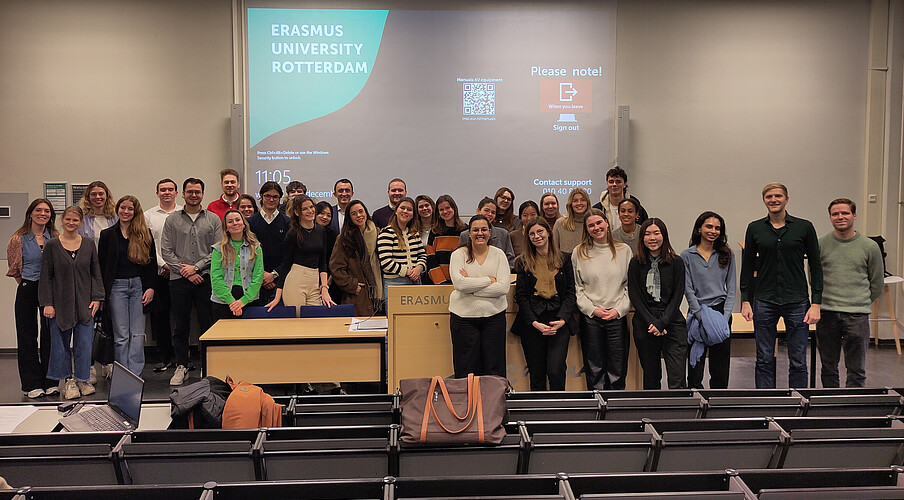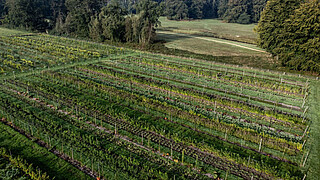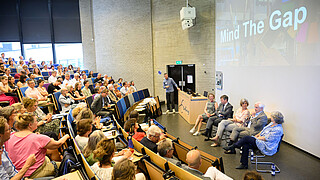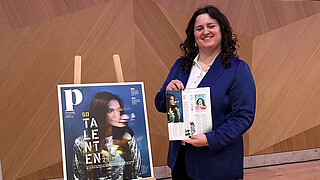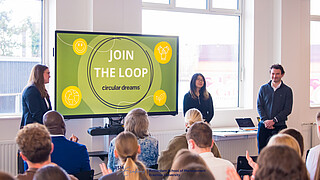Starting in November 2024, the course – led by RSM’s Dr Thomas Bauwens – offered students a comprehensive experience combining academic lectures, workshops, simulations, and even a virtual field trip. It culminated on in mid-December with student teams presenting their ideas to a multi-stakeholder jury, showcasing their creative and collaborative efforts to tackle one of the region’s most pressing challenges.
Exploring water security through diverse perspectives
This year’s challenge focused on water security, a critical issue in the Netherlands given the country’s geographical vulnerability and evolving climate concerns. The course brought together theoretical insights and real-world applications, equipping students with the tools to approach complex sustainability issues.
Student Emma Westenberg reflected on the course’s impact: “The most impressive realisation was that, even within a month, a challenge as grand as water security can be tackled. All it takes is commitment to solving the issue.”
For her classmate Hanna Latić, the variety of perspectives offered during the project was eye-opening: “Each group had its own perspective of the grand challenge, resulting in unique ideas. This clearly reflected the ‘evaluative’ aspect of grand challenges, where stakeholders interpret the issue and solutions differently.”
Creative solutions take centre stage
Student presentations ranged from technological innovations to organisational strategies. Westenberg highlighted one of the proposals which envisioned retrofitting Rotterdam’s rooftops to capture, store, and filter rainwater for residential use. “Feasibility-wise, I was left unconvinced, but in terms of taking a risk and being innovative, I was very pleased,” she remarked.
Latić found inspiration in a different pitch: “There was a suggestion that Evides establishes a non-profit consultancy business unit to advise industrial companies on reducing pollution. The idea was unique and really stood out from the rest.”
The jury recognised exceptional ideas by awarding two prizes: one for the most innovative and one for the most feasible. The roof-idea took the former for its out-of-the-box thinking, while a tiered pricing and certification programme won the feasibility award.
Lessons learned
The Sustainability Grand Challenges course left an indelible mark on participants, providing both inspiration and a sobering reminder of the complexities of global issues. Westenberg noted: “This event reminded me of the work still needed in sustainability to become the most convincing option for all. Although none of the solutions were 100 per cent feasible, the course showed that with dedication, progress is possible.”
Latić echoed similar sentiments: “Some solutions addressed root causes but were hard to implement, while others were feasible but didn’t tackle the root issues. It really showed how challenging it is to solve grand challenges.”
Beyond the technical insights, the collaborative atmosphere of the course proved equally impactful. “What inspired me the most was the entire cohort coming into every workshop and panel with such motivation to positively change the world,” said Westenberg.
A launchpad for future impact
The course also served as a glimpse into the kind of work students aspire to after graduation. For Westenberg, it reinforced her desire to work in the non-profit sector addressing societal challenges, while Latić plans to join an SME offering sustainable products or services.
As the final pitches drew to a close, the enthusiasm of the students and the thoughtful feedback from the jury underscored the value of the experience. Latić summed it up: “Hearing the different ideas and seeing the creativity in the pitches was truly inspiring. It’s an experience I’ll carry with me in my career.”
The Sustainability Grand Challenges course in RSM’s MSc Global Business & Sustainability programme exemplifies RSM’s commitment to equipping students with the knowledge and skills to address urgent global issues. By fostering collaboration between academia, industry, and society, the programme empowers students to make a tangible difference through business.
